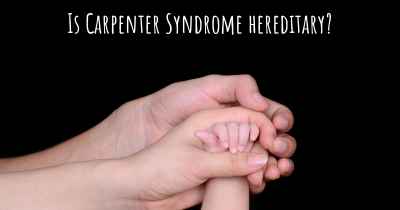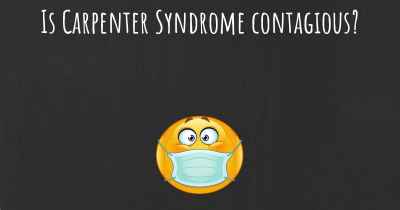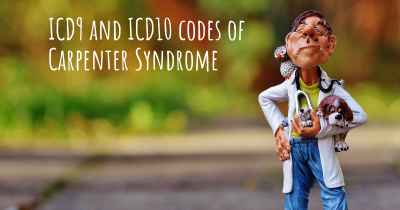Which are the symptoms of Carpenter Syndrome?
See the worst symptoms of affected by Carpenter Syndrome here

Carpenter Syndrome is a rare genetic disorder that affects multiple systems in the body. It is characterized by a combination of craniofacial, skeletal, and cardiac abnormalities. This syndrome is named after the British physician who first described it, Dr. Carpenter, in the 1900s.
One of the key symptoms of Carpenter Syndrome is craniosynostosis, which refers to the premature fusion of the skull bones. This can lead to an abnormally shaped head, as well as potential complications such as increased pressure on the brain. Individuals with this syndrome may have a prominent forehead, wide-set eyes, and a flat nasal bridge.
Skeletal abnormalities are another hallmark of Carpenter Syndrome. Affected individuals may have extra fingers or toes, a condition known as polydactyly. The fingers and toes may also be fused together, a condition called syndactyly. Additionally, individuals may have unusually shaped or missing bones in their hands, feet, or limbs.
Cardiac defects are common in individuals with Carpenter Syndrome. These can include structural abnormalities of the heart, such as ventricular septal defects (holes in the heart's walls) or abnormalities in the heart valves. These cardiac issues can vary in severity and may require medical intervention.
Other less common symptoms of Carpenter Syndrome may include intellectual disability, developmental delays, hearing loss, and obesity. The severity and combination of symptoms can vary widely among affected individuals.
Diagnosis of Carpenter Syndrome is typically based on clinical evaluation, medical history, and genetic testing. Genetic testing can identify mutations in specific genes associated with this syndrome, such as the RAB23 gene.
Treatment for Carpenter Syndrome is primarily focused on managing the individual symptoms and providing supportive care. This may involve surgical interventions to correct craniofacial or skeletal abnormalities, as well as addressing any cardiac issues. Regular monitoring and follow-up with a multidisciplinary medical team are essential to ensure the best possible outcomes for individuals with Carpenter Syndrome.
In conclusion, Carpenter Syndrome is a rare genetic disorder characterized by craniofacial, skeletal, and cardiac abnormalities. The most prominent symptoms include craniosynostosis, skeletal abnormalities such as polydactyly and syndactyly, and cardiac defects. Other less common symptoms may include intellectual disability, developmental delays, hearing loss, and obesity. Diagnosis is typically made through clinical evaluation and genetic testing. Treatment involves managing the individual symptoms and providing necessary interventions. Regular medical monitoring is crucial for individuals with Carpenter Syndrome.








